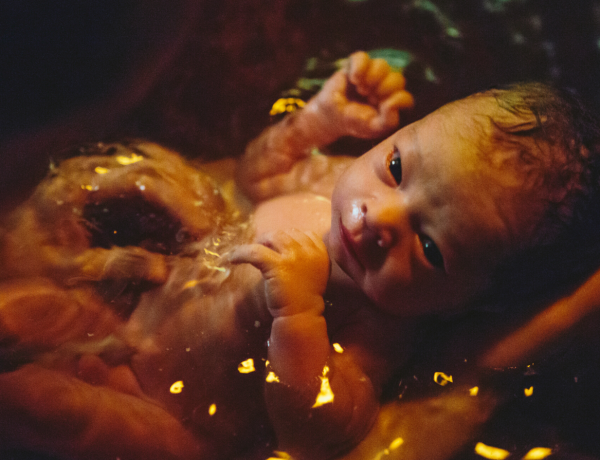* Some of the links in this post might be affiliate links. This means that if you click on the link and make a purchase, we’ll receive a small commission – at no extra cost for you, which helps us cover the costs for the blog.
Across the globe, about 353,000 beautiful little babies are born each and every day. If your own bundle of joy is about to join the ranks, you may be wondering what exactly your first day home will be like.
The truth is, many moms are still figuring things out during the first night home with a newborn. In fact, it can take quite a while before you get into the swing of things.
Of course, the right information can help you prepare for that first day when you don’t have the nurses and hospital staff to lean on.
Do you want to know what you can expect when you first bring your newborn home? Keep reading to find out!
Everyone Will Want to Visit
It doesn’t matter if they already visited you in the hospital, your loved ones will likely want to visit you and your new baby as soon as you get home.
However, you’ll want to limit the number of guests that visit within those first few days, both for your sake and for your baby’s.
Your body just went through A LOT. You’ll be experiencing some belly or vaginal pain (depending on if you had a c-section or vaginal birth) along with a sore body and a lot of bleeding. On top of it, your emotions will likely be running high and you may already be sleep deprived.
Although newborns aren’t shy around strangers, they can get overstimulated quickly. If there are too many people around, your baby may become tired and fussy.
The bottom line is that neither you nor your baby will likely be in the mood for tons of visitors on your first day home. It’s okay to invite your parents or a close loved one who can help you out as you adjust and heal, but don’t be afraid to tell everyone else to visit at a later time.
Falling Asleep Isn’t Always Easy
You’ve likely heard the popular advice: “when your baby is sleeping, you should be too.” But for many new moms, this is easier said than done.
This is the first time since conception that your precious baby isn’t safe and sound inside your belly. So, it’s not uncommon to worry, even if your baby is sleeping right next to you. Don’t expect to be able to fall asleep as soon as your head hits the pillow during your first few days, even if you are sleep deprived.
Babies Don’t Always Breath “Normally”
As if you weren’t already feeling worried enough, not all babies
BUY ON AMAZON | The Owlet Smart Free Sock Baby Monitor
They Get Hungry Often
While children and adults have three large meals a day, the same cannot be said for babies. A newborn’s stomach is very small, so they can only eat about 1 to 3 ounces per feeding. This means they need to eat more often to get all the nutrients they need.
So, expect to breastfeed every 1.5 to 3 hours or formula-feed every 2 to 3 hours.
The most common sign of hunger is crying. But not all babies communicate in the same way. If your baby smacks their lips, sucks on their hands, or purses their lips and turns their head toward your breast, they may be hungry.
Breastfeeding Hurts
You’ve probably seen those precious Instagram shots where the mother is breastfeeding her baby in peace and comfort. However, this isn’t typically how breastfeeding goes.
Many new moms find that nursing is actually painful, especially at night. Your nipples can become sore and cracked, so be sure to apply a nipple cream like Cora Organic, Lanolin-Free, Baby Safe Nipple Balm, after nursing or ice your breasts to relieve pain.
BUY ON AMAZON | Cora, Organic, Lanolin-Free, Baby Safe Nipple Balm
You’ll Be Up to Your Ears in Dirty Diapers
What goes in must come out. And boy, will your baby use up a lot of those diapers in your stockpile.
If you spent your time in the hospital resting, you probably didn’t notice just how many times your baby needed to be changed. But breastfeed newborns will wet about 5 diapers a day while formula-fed babies will wet upwards of 10 diapers per day!
And that’s only when your baby pees. You can also expect 1 to 2 poopy diapers per day for the first few days. Unfortunately, this number shoots
BUY ON AMAZON | Ubbi Steel Odor Locking Diaper Pail
Your Baby’s Poop Will Look Odd
When changing those dirty diapers, you’ll notice that your baby’s poop looks a bit odd.
A newborn’s poop has a very loose consistency, so every dirty diaper will look like diarrhea at first. Depending on if they’re breastfed or formula-fed, it can range in appearance from a mustard to a greenish brown color. It may even look like it contains small seeds.
All this is totally normal! But still, expect to have plenty of poop-related conversations with your husband during the first few days.
TMS Therapy During Pregnancy: A Safe Alternative for Treating Depression
Pregnancy is a transformative journey filled with excitement, joy, and anticipation. However, for many…
February 12, 2025Your Biggest Pregnancy Ultrasound Fears (and How They Stack Up Against Reality)
I remember my first pregnancy ultrasound like it happened yesterday. There I was, sitting…
November 24, 2020Does COVID-19 Encourage Pregnant Families to Birth at Home?
For many pregnant families, COVID-19 adds an element of fear to birthing in a…
July 12, 2020The Crying Isn’t at Its Worst
It’s no secret that babies cry. But many parents think that the first few days will be the loudest and then the crying will slowly taper off throughout the next few weeks and months.
But many newborns are actually fairly quiet during the first couple of days. They’ve gone through a lot, too, so you can expect that your baby will want to spend a lot of time sleeping. Some parents even have to wake their newborn up for feedings if they sleep longer than 4 hours.
Whether you have a loud or a quiet baby during that first day home, don’t expect it to stay that way. Crying increases from 2 to 8 weeks old, and they’ll cry for several hours each day during this time. Thankfully, by the 8-week mark crying should start to taper off.
Surviving Your First Night Home with a Newborn
You’ll experience a lot of ups and downs during your first night home with a newborn. You’ll likely encounter some pain, tears, and confusion along with some laughs and a whole lot of love. Just follow the guide above so you know what to expect on that first day home with your new bundle of joy.
This article is not intended to be a substitute for professional medical advice, diagnosis, or treatment. Always seek the advice of your physician or other qualified health provider with any questions you may have regarding a medical condition. Never disregard professional medical advice or delay in seeking it because of something you have read on this website.








No Comments